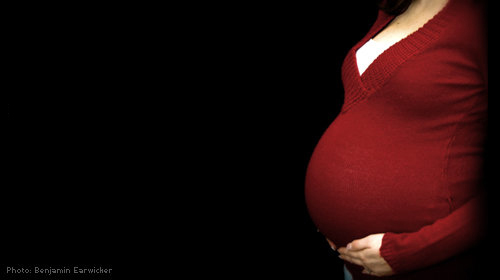
Asia Myers was counting on the paycheck she earned at her job at a nursing home to buy supplies for the baby girl she was expecting.
She was shocked, however, when her employer, the Hope Healthcare Center, forced her to go out on unpaid leave after her doctor advised her not to lift as a result of pregnancy complications. After all, her employer routinely allows workers who are injured on the job to come to work, even when they have lifting restrictions.
Asia had to go without work for a month and struggled to make ends meet.
And then there's Ashley Provino.
Ashley was denied the right to pump breast milk at her job as a hair stylist. Instead of accommodating her need to pump every four hours, her employer drastically reduced her hours, and then fired her when she continued to request breaks for pumping. Her employer said it was because of her "limited availability," and because "work was not her first priority" now that she had a baby.
While firing and pushing out pregnant and breastfeeding workers may seem like something from the 1950s, today thousands of women face this kind of discrimination from their employers.
Fortunately, there may be some relief in sight.
This week the Equal Employment Opportunity Commission (EEOC) issued an โ its first on pregnancy discrimination in more than 30 years. The new guidance makes clear what Asia, Ashley, and other women have argued in discrimination complaints: that employers have to give pregnant workers, who have temporary restrictions related to their pregnancies, the same kinds of light-duty assignments and other reasonable accommodations that they give to other workers with temporary lifting restrictions, including workers who are injured on the job. The EEOC also said employers may not discriminate against workers for breastfeeding.
The guidance provides clarity to employers on a number of other points as well:
- It makes clear that employers may not generally force pregnant workers who are able to work to take leave.
- It explains that many pregnancy-related impairments, like preeclampsia or gestational diabetes, will qualify women directly for reasonable accommodations under the American with Disabilities Act.
- It clarifies that discrimination against breastfeeding workers is covered under the Pregnancy Discrimination Act.
- It specifies that if an employer provides parental leave over and above what's medically necessary to recover from childbirth, that leave must be available on an equal basis to male and female employees.
The new guidance is a welcome clarification. Too many workers, like Asia and Ashley, have been pushed out of the workplace and deprived of their ability to earn the income they need to provide for their families.
The guidance will go a long way towards eliminating this unlawful discrimination and inequality in the workplace.
Learn more about pregnancy discrimination and other civil liberties issues: Sign up for breaking news alerts, , and .

